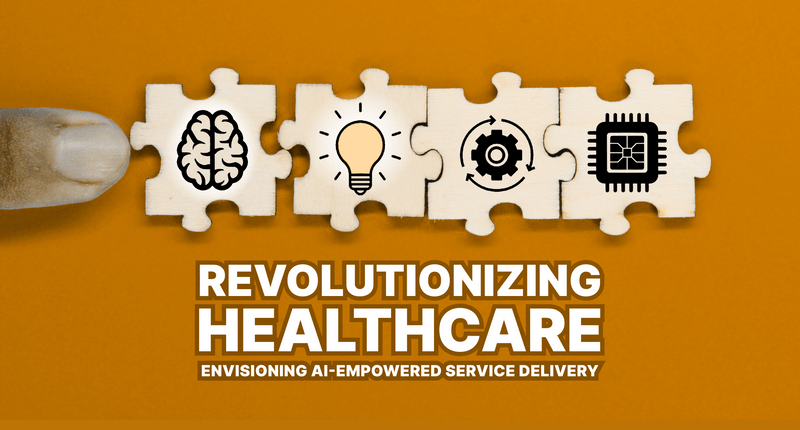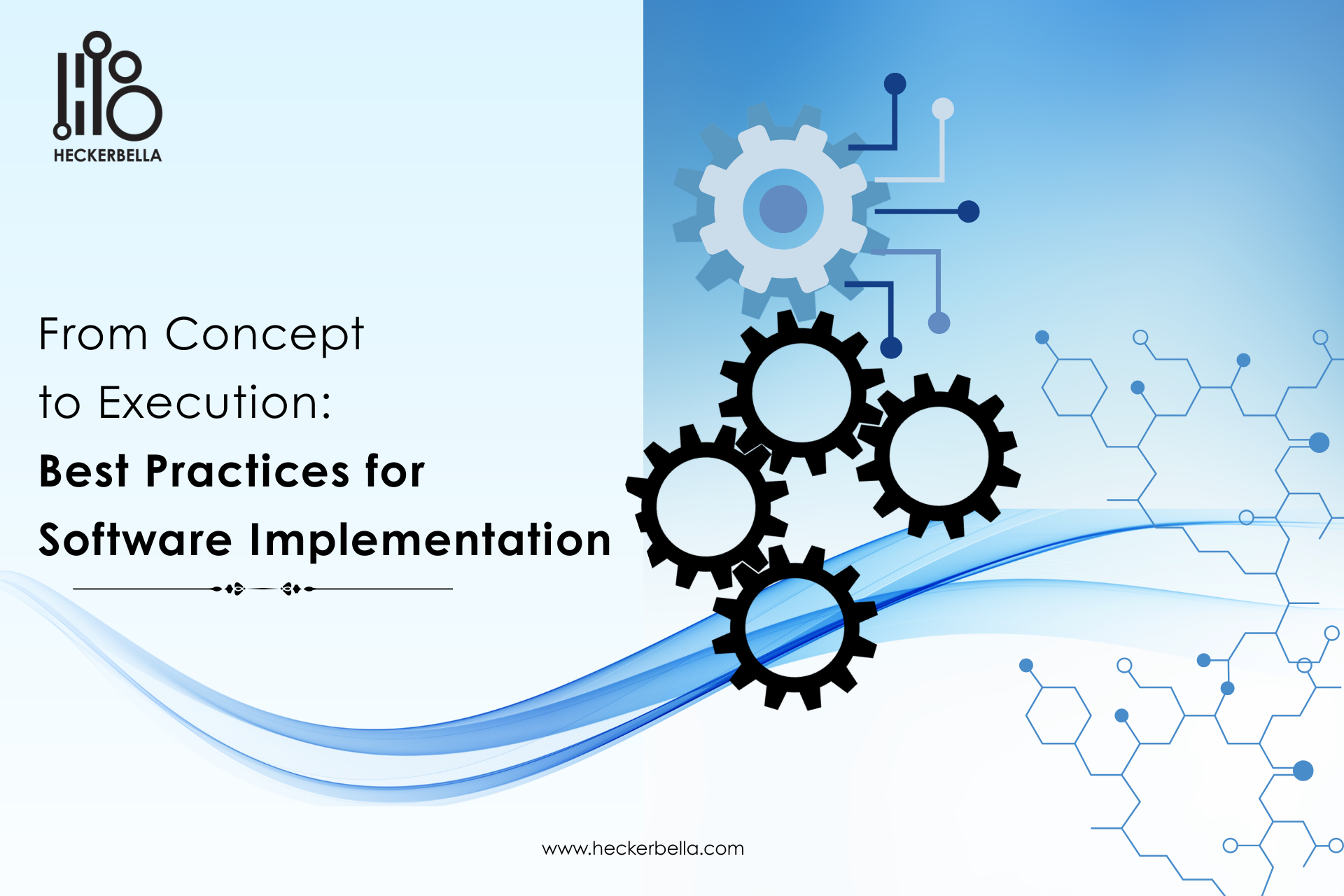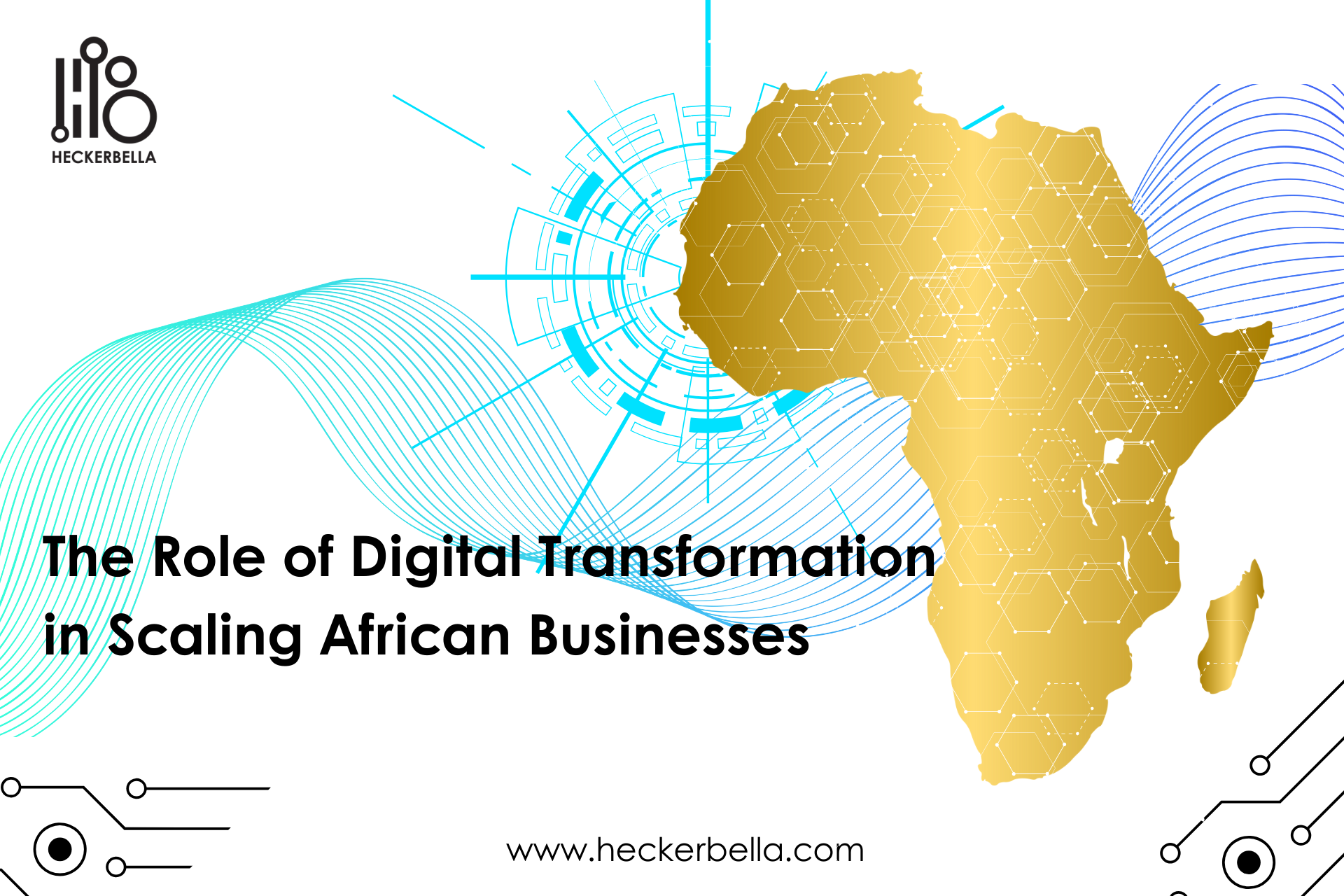Revolutionizing Healthcare: Envisioning AI-Empowered Service Delivery
Daniel Oparison
September 15, 2023

The convergence of artificial intelligence (AI) and healthcare is poised to usher in an era of unparalleled transformation, redefining the way we experience and access medical services. Imagine a healthcare landscape where AI is not just a tool, but an integral part of service delivery, enhancing efficiency, accuracy, and patient outcomes. The possibilities are vast, and the potential benefits are truly thought-provoking.

1. Personalized Patient Care
AI holds the promise of tailoring medical treatments to individual needs like never before. Imagine a scenario where diagnostic processes are driven by AI algorithms that analyze extensive patient data within seconds, offering precise diagnoses and treatment recommendations. This level of personalization could significantly reduce misdiagnoses and streamline treatment plans, leading to better health outcomes. The promise of personalized care should motivate us, but the path toward its realization must be tread with caution. The reliability of AI algorithms hinges on the quality and diversity of the data they are trained on. Ensuring that AI models are not biased or skewed requires meticulous oversight and continuous refinement.


2. Proactive Disease Prevention
We often hear that prevention is better than cure, and AI can take this adage to new heights. Picture a world where AI-enabled systems monitor individuals’ health data in real-time, detecting subtle changes that might signal the onset of diseases. By identifying risks early on, healthcare providers could intervene more effectively, potentially averting the development of serious conditions. AI’s potential to predict disease onset is both remarkable and challenging. While AI can analyze data to identify early warning signs, striking a balance between proactive intervention and patients’ right to privacy is paramount.

3. Telemedicine Enhanced by AI
Telemedicine has already shown its worth, especially during global crises when physical contact is limited. Now, imagine coupling telemedicine with AI-driven chatbots capable of conducting initial patient assessments, gathering relevant information, and offering preliminary advice. This could optimize healthcare provider’s time, allowing them to focus on more complex cases, while also providing immediate assistance to patients. While these virtual assistants can provide preliminary assessments, the nuances of human expression and context cannot be fully replicated by machines. As we navigate this uncharted territory, ensuring that patients have the option for direct human interaction is essential.

4. Streamlined Administrative Processes
The healthcare system is burdened with administrative tasks that divert resources from patient care. Enter AI-powered solutions that can manage appointment scheduling, billing, and even medical documentation. Such automation could lead to reduced administrative costs, enabling healthcare professionals to allocate more time to direct patient interaction. Empowering people to do more vs simply replacing people will be key here.

5. Drug Discovery and Treatment Advancements
The process of drug discovery is notoriously lengthy and expensive. AI can and is already being used to expedite this process by analyzing massive datasets to predict the effectiveness of potential drug compounds, thus accelerating the journey from lab to patient.
Additionally, AI can assist in identifying new applications for existing drugs, unlocking novel treatment possibilities. However, AI’s role in drug discovery is a double-edged sword. While AI can accelerate the process, it’s crucial to recognize that success is not guaranteed. Predictions from AI models must be thoroughly validated through rigorous experimentation.

6. Ethical Considerations and Human Touch
While AI brings a multitude of benefits, ethical considerations must remain at the forefront of its integration into healthcare. Ethics and AI in healthcare are intertwined in a complex dance.
The importance of the human touch cannot be overstated. AI can enhance efficiency, and the impact extends beyond clinical accuracy, encompassing issues such as transparency, accountability, and informed consent. But the compassion, empathy, and nuanced decision-making of human healthcare providers are irreplaceable.
Striking the right balance between technology and human interaction is pivotal. Furthermore, as we explore AI’s potential, we must vigilantly address concerns about decision-making transparency and potential biases to ensure that technological advancements align with our ethical principles.

7. Collaborative Ecosystems and a Call for Pragmatism
The AI revolution in healthcare will require collaborative efforts from tech developers, medical professionals, regulatory bodies, and patients. Interdisciplinary collaboration can ensure that AI tools are developed responsibly, validated rigorously, and integrated seamlessly into the healthcare landscape.
In this pursuit of AI-powered healthcare transformation, we must balance our aspirations with pragmatism. The ideas outlined here hold immense potential, but they also demand meticulous testing and validation. Relying on evidence-based approaches, we can mitigate risks and confidently embrace AI’s benefits without compromising patient safety or ethical considerations.

Our key point: Embracing the Future
The concept of AI-powered healthcare may still sound futuristic, but its implementation is well underway. By embracing this future, we open the door to a healthcare system that is more precise, proactive, and patient-centered. As we navigate this transformation, it’s imperative to maintain a human-centric approach, where AI enhances rather than replaces the critical role of healthcare providers. Let’s dare to imagine a healthcare landscape where AI is not just a tool, but a catalyst for a healthier world.




